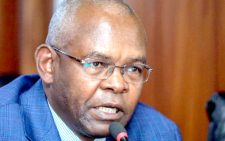Leverage lower inflation to spark economic recovery

Inflation in Kenya fell to 3.6 percent on an annualised basis in September, the lowest level in 12 years. It stood at 4.4 per cent in August 2024.
Given all the political noise in the country currently, the really great work that the government has done to achieve these results has all but been completely obscured.
Prices of basic commodities like maize flour, sugar, wheat flour, and cooking oil have all fallen, in some cases by as much as 50 per cent. Critically, the economy has achieved price stability and predictability, driven by falling inflation.
Farmgate prices of agricultural produce have dropped substantially due to good harvests, given the adequate rains and the government’s subsidised fertiliser.
The exchange rate of the shilling to the dollar has dropped from its stratospheric heights of Sh160 to a stable Sh128, a 20 per cent decrease. This has worked wonders for sectors like manufacturing and other importers. The depreciating shilling was a major driver of imported inflation. The appreciation has driven down the country’s external debt repayments by the same margins as the exchange rate.
Prices of fuel products have been in decline due to the appreciating shilling, and falling prices of crude oil globally. Oil prices give inflation impetus, as the entire economy is transported in vehicles.
Cumulatively, falling prices across all sectors have eased the cost of living pressures on households, as well as the cost of doing business for manufacturers. At this rate, the government’s inflation floor target of 2.5 per cent will be met before the end of this year.
The government must now move aggressively to jumpstart economic recovery by leveraging the falling inflation. At 3.6 per cent, it means that real interest rates are in the single digits. As this column noted the last time the Central Bank of Kenya (CBK) jerked up interest rates to signal a credit squeeze based on fears of rising inflation, its drivers have been in retreat for over a year now. Those fears were clearly unfounded. Even now, nothing on the horizon shows any indication of this trend being reversed.
The biggest push by the government must be to drastically lower interest rates. The next scheduled meeting of the Monetary Policy Committee of the CBK on October 8 must signal to the banking sector that it wants years of streaking interest rates reversed. Inflation is understandably the biggest concern for central bankers globally. But just as they are very quick to jerk up interest rates to choke off credit, they should act with equal alacrity in dismantling the rates’ fortress when the enemy retreats into the distance. They agonise too long.
A very hungry government must play its part. It remains very active in the domestic market with its Treasury Bills and bonds to finance a yawning budget deficit. It must strike a balance that allows businesses to access credit at low interest rates, even as it remains an active player competing for the same resources.
A substantial lowering of the CBK rate will signal to the market that CBK wants to ease the credit squeeze it imposed. Lower interest rates will have a huge impact on businesses. Immediately, existing loans will become cheaper, releasing internal resources from debt repayment to cash flow.
A whole swathe of businesses currently locked out because they are a credit risk in the current high-interest environment immediately become viable as they are now able to afford repayment.
Treasury Cabinet Secretary John Mbadi has shown a refreshing penchant for a mindset that is not locked into dogma, something the country last saw in the era of late President Mwai Kibaki.
Mbadi now needs to start putting his money where his mouth his. This economy will not be jumpstarted by continuing down the old tired, cliched route, perennial whining, and subserviently waiting to be administered by the International Monetary Fund.
The low and falling inflation regime has given him the bandwidth he needs to exercise a myriad of bold options.
— gathukara@gmail.com















